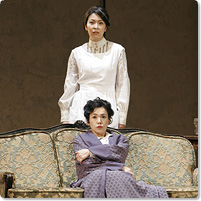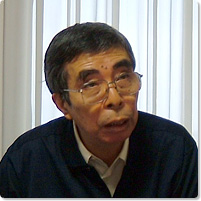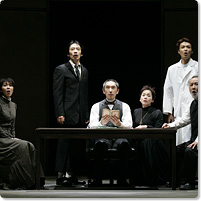Caught by the local police chief, as he is about to enter a no-minors vaudeville theater disguised as an adult, the young Chekhov is led home by the officer. Having learned that the greatest masterpiece of Russian literature at the time, Nikolai Gogol’s
The Inspector General
, had been inspired by vaudeville theater, the young Chekhov was determined to write a great vaudeville piece.
Having fulfilled his other dream of entering the Moscow University Medical School, the young Chekhov writes miscellaneous articles and short stories to help support his poor family as he studies. After graduating with honors, the young doctor opens a practice in the commercial district of Moscow. Seeing her brother, who is weak of body himself, struggle to help poor patients knowing that they will bring in no profit, Chekhov’s younger sister Mariya turns down a marriage proposal from a young man named Ivan and vows to help her brother for at least ten years.
Moving to Sakhalin, Chekhov is pained to see the miserable lives of the people there. After listening to the young Chekhov speak of his feelings of collective responsibility for these people, the mature Chekhov in his prime gives his younger self words of encouragement before replacing him as the main character.
Now the medical director of the public hospital in south of Moscow, Chekhov has become involved in an incident in which a patient named Soberlin has committed suicide but, at the pleading insistence of his widow, the cause of death has been reported as murder rather than suicide. Chekhov had been watching with disbelief the unexpected recovery of Soberlin’s stomach ulcer until he realizes that the cause of his improvement was the laughter produced by a unique bridge game he had invented.
The scene shifts to the most exclusive restaurant in Moscow. The premiere of the new play
The Seagull
has been a failure and [the director] Stanislavski and Danchenko are discussing it, saying that new theater demands a new type of acting and staging. During this conversation appears an actress named Olga who is moonlighting as a cigarette vendor. She has been rehearsing the role from
Seagull
every night to exhaustion and here she performs a scene in front of the two men. Stanislavski is immediately taken with the naturalness of her performance and decides to use her in the play, which then becomes a big success.
Now in his prime, Chekhov has become the most acclaimed author in Russia, but he is dissatisfied with himself for allowing his fame to make him a merely a writer of “the finest short stories.” He feels that his fame has undermined his childhood dream of writing just one truly interesting vaudeville piece, and the dream of his youth to be able to bring the saving grace of “laughter” to people. Encouraged by the words of Olga, who suggests that if he can’t do it in novels, he could try to do it in a play, Chekhov is working out the ideas for a vaudeville play spiced with satirical humor for his next work under the title
Three Sisters
.
Chekhov and Olga are now married. She performs as an actress in Moscow while he writes in their home in Yalta. He sends her letters frequently, headed by the words, “My dearest love, my wonderful wife and bright, bright light of my life.” Here the middle-aged Chekhov is replaced by the elderly Chekhov, his health ruined by the tuberculosis that he has long suffered from and has now spread to his intestines. As always, he still lives apart from his wife but they continue to love each other. And, he still continues to dream of writing a great work of vaudeville and rages at Stanislavski for making a tear-jerking emotional play out of his
Three Sisters
, which originally was supposed to make people laugh. The scene changes to a private first-class compartment in a train in which Chekhov and Mariya are headed toward Moscow to treat his illness. It is late at night. From a corridor come the three younger Chekhovs, the young boy, the youth, the man in his prime, and each of them asks Mariya to have his medical school and the hospitals where he has worked to continue sending them books throughout their lives. Mariya nods in acknowledgement to each of them. The three younger Chekhovs pay their respects to the elder Chekhov with smiles on their faces and then depart. Mariya sees them off and then continues to stand at the window looking out.
In the next scene all of the characters come on stage and the six actors join voices in praise of the elderly Chekhov, saying, “You are a great Vaudevillian. The path you have chosen is still a difficult one.” Here the final curtain falls.




